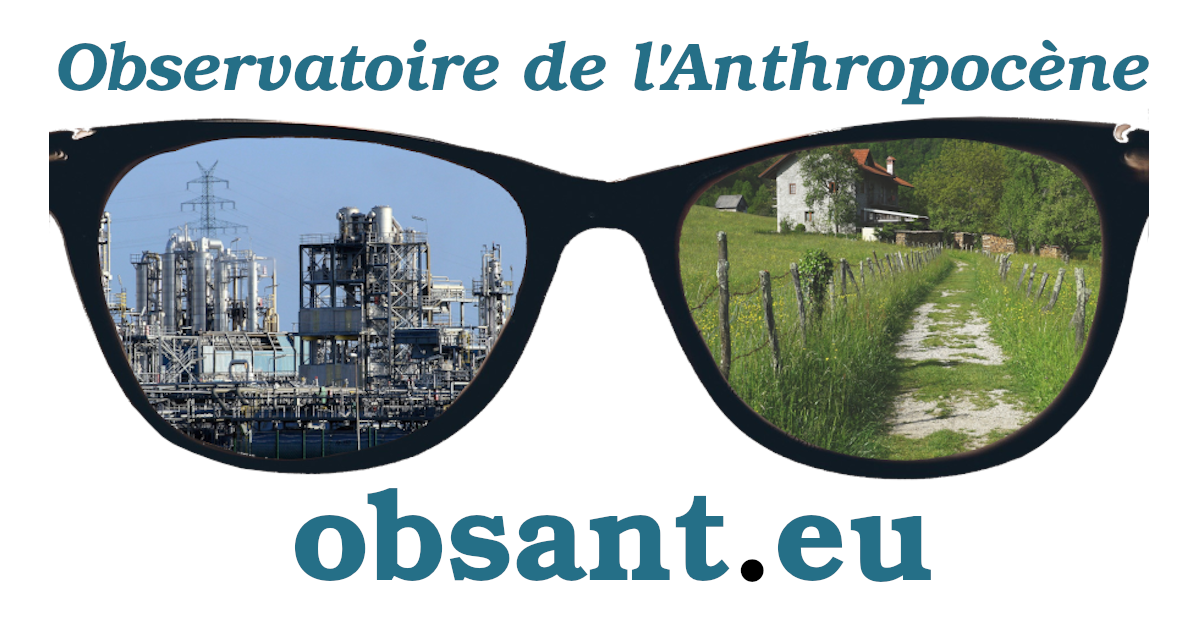Les champs auteur(e)s & mots-clés sont cliquables. Pour revenir à la page, utilisez le bouton refresh ci-dessous.
filtre:
climat collaps
Dr Luke Kemp is a Research Associate at the Centre for the Study of Existential Risk, University of Cambridge. He has a PhD in international relations from the ANU and previous experience as a senior economist at Vivid Economics. This episode explores catastrophic and extinction risk, why the topic is understudied, and how we can weigh out the catastrophic risks of climate change and solar geo-engineering.
Scientists say ‘shocking’ discovery shows rapid cuts in carbon emissions are needed to avoid catastrophic fallout
The Atlantic meridional overturning circulation (AMOC) is an important tipping element in the climate system. There is a large uncertainty whether the AMOC will start to collapse during the century under future climate change, as this requires long climate model simulations which are not always available. Here, we analyze targeted climate model simulations done with the Community Earth System Model (CESM) with the aim to develop a physics-based indicator for the onset of an AMOC tipping event. This indicator is diagnosed from the surface buoyancy fluxes over the North Atlantic Ocean and is performing successfully under quasi-equilibrium freshwater forcing, freshwater pulse forcing, climate change scenarios, and for different climate models. An analysis consisting of 25 different climate models shows that the AMOC could begin to collapse by 2063 (from 2026 to 2095, to percentiles) under an intermediate emission scenario (SSP2-4.5), or by 2055 (from 2023 to 2076, to percentiles) under a high-end emission scenar
A team of researchers in California drew notoriety last year with an aborted experiment on a retired aircraft carrier that sought to test a machine for creating clouds. But behind the scenes, they were planning a much larger and potentially riskier study of salt-water-spraying equipment that could eventually be used to dim the sun’s rays — a multimillion-dollar project aimed at producing clouds over a stretch of ocean larger than Puerto Rico.
New research reveals Earth's natural carbon sink nearly collapsed in 2024, absorbing almost zero human CO₂ emissions.
The Kenyan marine ecologist David Obura is chair of a panel of the Intergovernmental Science-Policy Platform on Biodiversity and Ecosystem Services (IPBES), the world’s leading natural scientists. For many decades, his speciality has been corals, but he has warned that the next generation may not see their glory because so many reefs are now “flickering out across the world”.
Recent simulations using the Community Earth System Model (CESM) indicate that a tipping event of the Atlantic Meridional Overturning Circulation (AMOC) would cause Europe to cool by several degrees. This AMOC tipping event was found under constant pre-industrial greenhouse gas forcing, while global warming likely limits this AMOC-induced cooling response. Here, we quantify the European temperature responses under different AMOC regimes and climate change scenarios. A strongly reduced AMOC state and intermediate global warming (C, Representative Concentration Pathway 4.5) has a profound cooling effect on Northwestern Europe with more intense cold extremes. The largest temperature responses are found during the winter months and these responses are strongly influenced by the North Atlantic sea-ice extent. Enhanced North Atlantic storm track activity under an AMOC collapse results in substantially larger day-to-day temperature fluctuations. We conclude that the (far) future European temperatures are dependent o
A new point in history has been reached, entomologists say, as climate-led species’ collapse moves up the food chain even in supposedly protected regions free of pesticides
What if the rules of the game have already sealed our fate? This is a brutal mathematical reality: an unstoppable, self-reinforcing chain reaction in the Earth’s climate system is now underway.
Lenton, the founding director of the Global Systems Institute at the University of Exeter, was the lead author of the 2008 paper that formally introduced the idea of tipping points in the Earth’s climate system.
In this book Adam Greenfield, author of Radical Technologies, recovers lessons from the Black Panther survival programs, the astonishingly effective Occupy Sandy disaster-relief effort and the solidarity networks of crisis-era Greece, as well as municipalist Spain and autonomous Rojava, to show how practices of mutual care and local power can help shelter us from a future that often feels like it has no place for us or the values we cherish.
For years, climate scientists have warned us of rising temperatures, extreme weather, and ecological breakdown. Now, the very people who calculate financial risk—actuaries—are sounding the alarm. Their latest report projects a 50% collapse in global GDP within decades. That’s not a recession. That’s economic devastation on a scale we’ve never seen.
Global risk management for human prosperity
The risk of Planetary Insolvency looms unless we act decisively. Without immediate policy action to change course, catastrophic or extreme impacts are eminently plausible, which could threaten future prosperity.
The only publication for climate action, covering the environment, biodiversity, net zero, renewable energy and regenerative approaches. It’s time for The New Climate.
The abrupt loss of many species from a system is generally attributed to a breakdown in ecological functioning. As species are sequentially knocked out, the whole community becomes unstable, and it all comes crashing down. Another mechanism that may be at play. My colleagues and I argue that despite the fact life on Earth displays such great variety, many species that live together appear to share remarkably similar thermal limits. That is to say, individuals of different species can tolerate temperatures up to similar points.
The year 2024 wasn’t just another chapter in the unfolding climate saga; it felt like the plot twist no one wanted to believe. For decades, climate scientists warned of ifs — if we pass this tipping…
Every December, people ask us how severe the year’s extreme weather events were. To answer this question, we’ve partnered with Climate Central to produce a report that reviews some of the most significant events and highlights findings from our attribution studies. It also includes new analysis looking at the number of dangerous heat days added by climate change in 2024 and global resolutions for 2025 to work toward a safer, more sustainable world.
I mapped out a likely scenario, based on a synthesis of a variety of estimates combined with a dose of interpretation. While I can't predict the future, if we continue business as usual we'll soon witness compounding destruction of our infrastructure, economy and agricultural systems. A reasonable estimate suggests cascading civilizational and social collapses by mid-century - just 25 years from now.
The climate and ecological crisis poses an unprecedented challenge, with scientists playing a critical role in how society understands and responds. This study examined how 27 environmentally concerned scientists from 11 countries construct the future in the context of climate change, applying a critical discursive psychology analysis. The degree to which the future is constructed as predetermined or transformable impacts both the urgency and scope of proposed actions. ...
![]()






